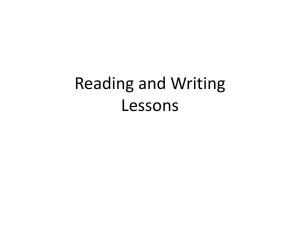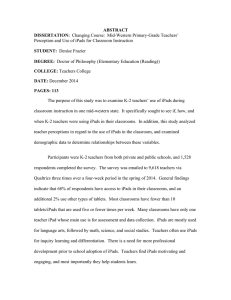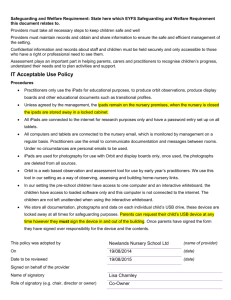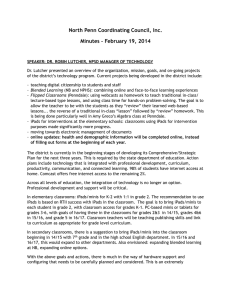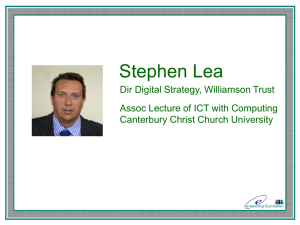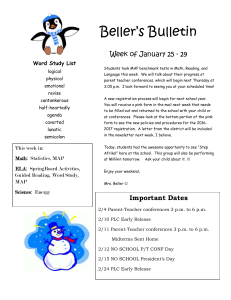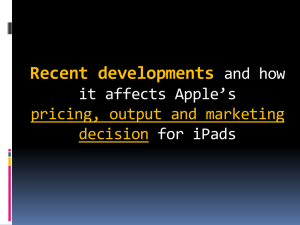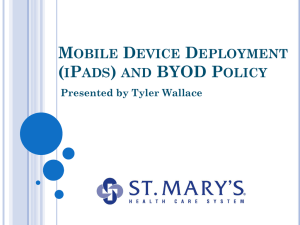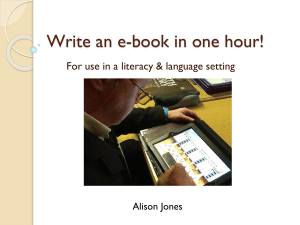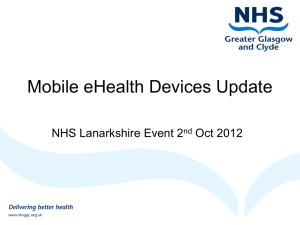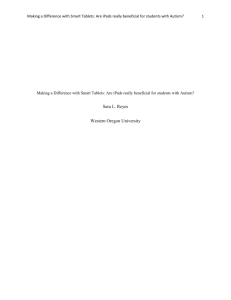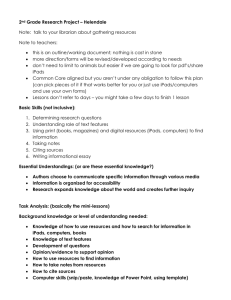iPad implementation package
advertisement
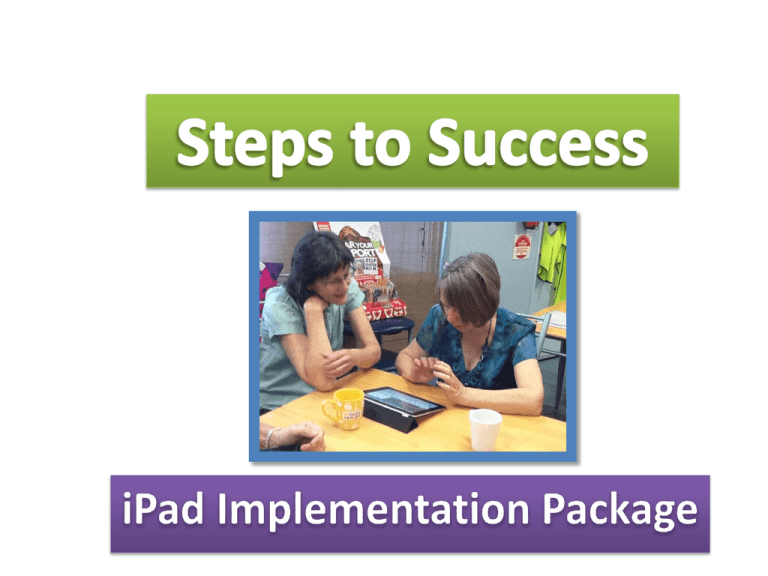
Acknowledgement This package has been adapted by Student Services Northern Territory Department of Education and Training and we would like to acknowledge the work of the State Government of Victoria - Department of Education and Early Childhood Development - iPads for Learning. The original documentation can be located at www.ipadsforeducation.vic.edu.au/ How to use this package This package has been created to assist schools in implementing an iPad program in their context. It is aimed specifically at students with special needs and is best implemented at Special Schools or Special Centres. However it could be adapted to include other schools. To navigate your way around the package use the hyperlinks and the buttons on the bottom of the page. As there are external links within this package, you will need to ensure you have access to Adobe Reader, Microsoft Word & the Internet. Links will open in a web browser window, if you can not see it initially, press the esc key, minimise the power point and click on the web browser in the task bar. Navigate to Title Page Navigate to Contents Page Why iPads? There is an increasing amount of research to support the use of digital technology in Special Education. The use of digital technologies provides opportunities for learners to make connections, foster collaboration, encourage communication and provide a dynamic repository (Futurelab, 2009). The use of iPads has been trialled in various locations across Australia, most significantly in Victoria at Warringa Park School. This trial showed that iPads had an impact on the improvement of student learning and student achievement in literacy and numeracy. It also showed that teachers in special schools were ‘relatively more optimistic about the extent to which using iPads would enhance student motivation and engagement’ (Use of iPads in Specialist Schools, April 2011). In order to ensure that the iPads are used to ‘reach and teach’ all students, the Universal Design for Learning (UDL) approach should be taken to ensure that the instructional needs of all learners are met. This approach is based on brain and media research and looks at selecting appropriate learning goals, choosing and developing effective methods and materials and developing accurate and fair ways to assess students’ progress, whilst ensuring that each student is addressed as an individual with unique needs, interests and abilities. More information can be found at www.cast.org . Based on the four phases used in the Victorian trial, the following phases will be used to structure the program: • • • • Planning Preparing Implementing Evaluating • Like in the Victorian trial, these phases are interrelated and are not necessary implemented in this strict order. The guidelines given throughout this document can be used when implementing iPads in a special school setting. Planning • Current Research • Vision • Engage Stakeholders • Readiness Assessment • Program Plan • Preferred Purchasing Method Preparing Implementing • Initial Survey • Learning places and spaces • Support documentation • Initial Device Setup • Distribute devices • Professional Learning • Parent & Community Sessions Evaluating • Review • Reporting
